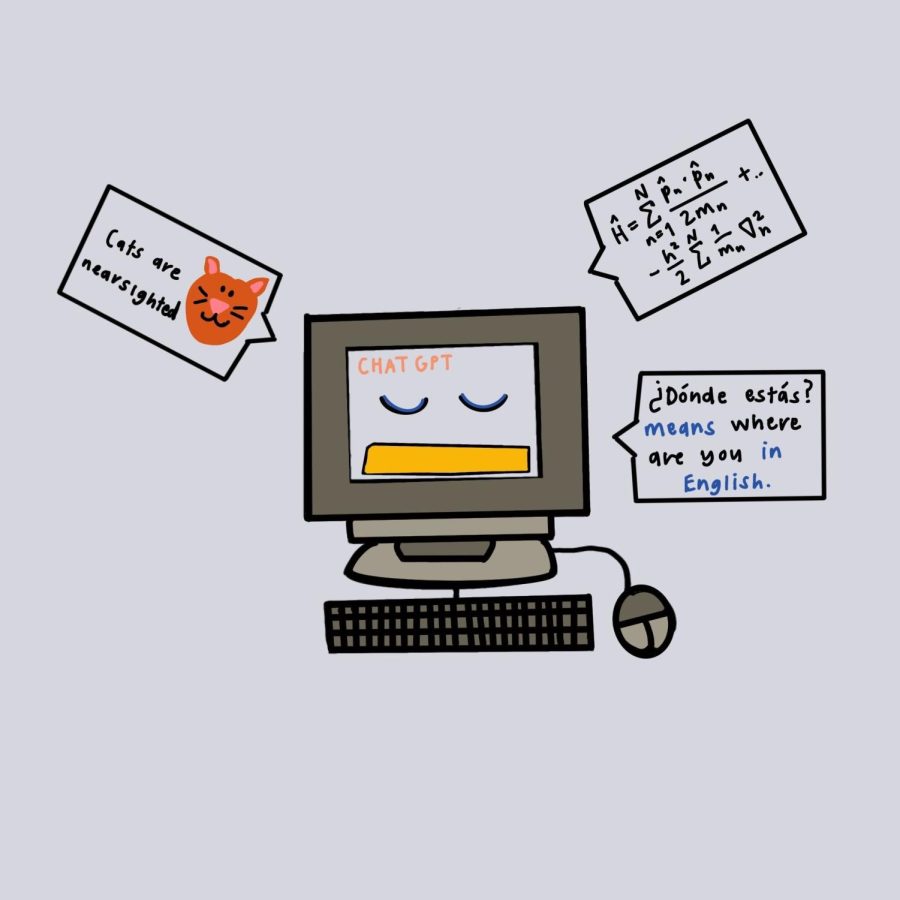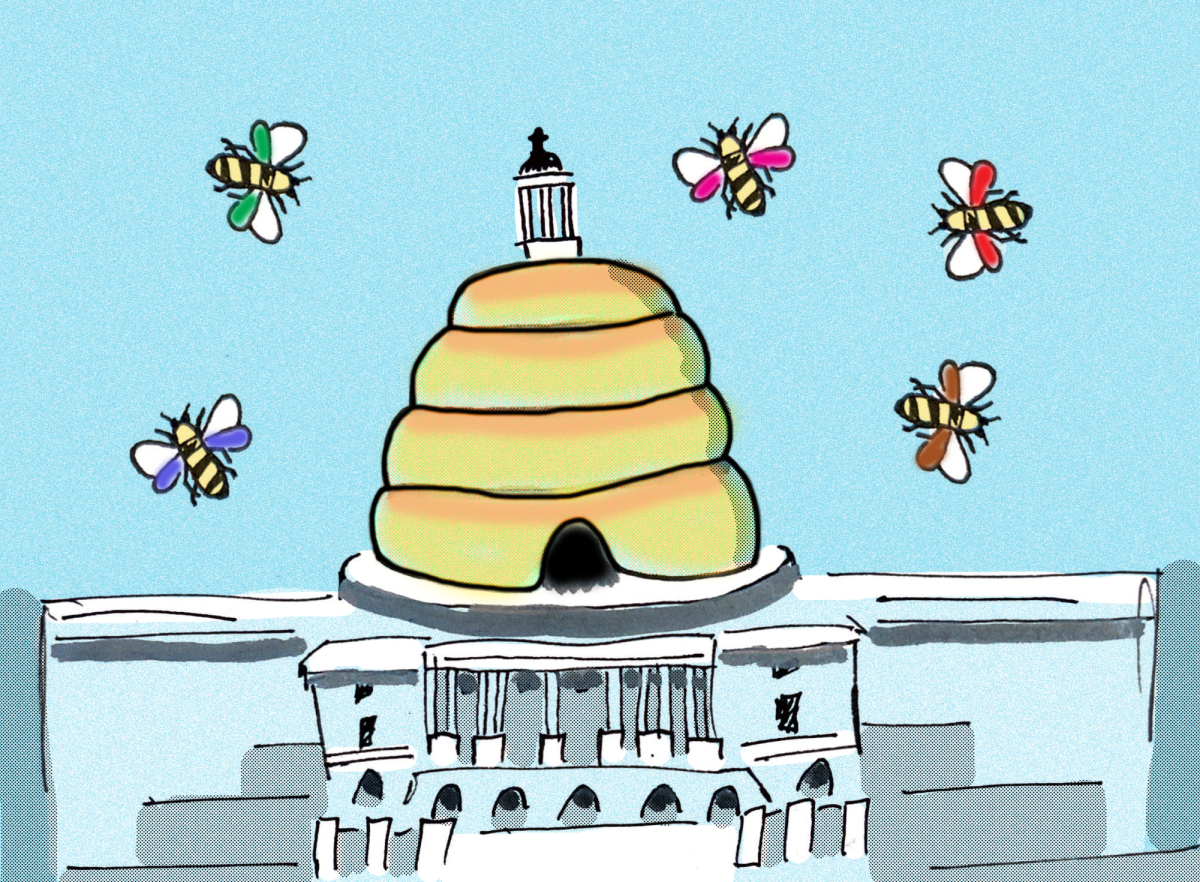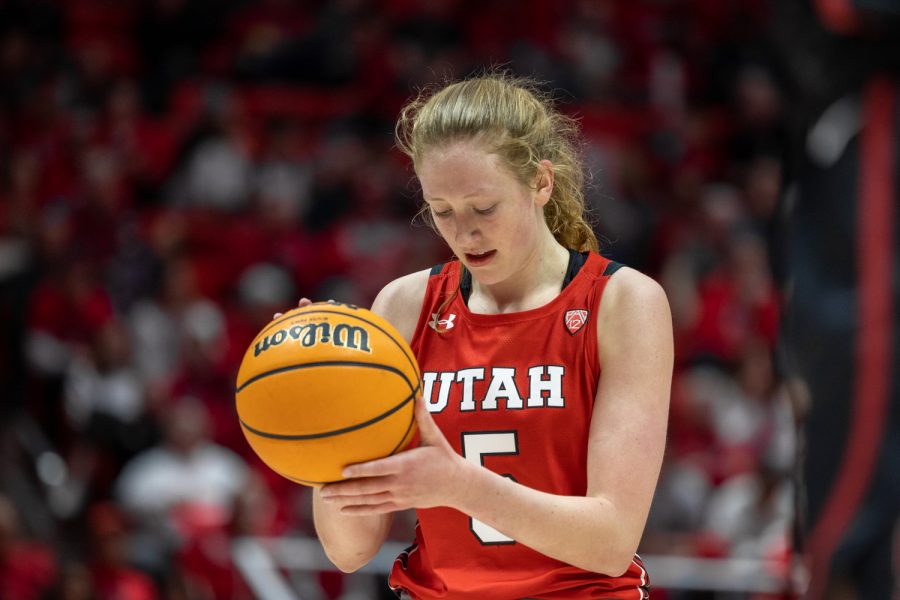ChatGPT Set to Change Higher Ed Landscape
(Graphic by Brenda Payan-Medina | The Daily Utah Chronicle)
March 30, 2023
“ChatGPT, an advanced language model, is transforming higher education by offering new ways to enhance learning. However, concerns have been raised about its reliance on existing data and limited understanding of context and emotion, raising questions about academic integrity,” ChatGPT wrote when I asked it to write a lede for a story about ChatGPT and its implications in higher education.
The AI program was initially designed as a chatbot, but has taken the higher education world by storm as more and more students use it to help with or even do entire assignments for them.
“We need to recognize the fact that this thing can generate decent texts, texts that could pass off as, at times coherent, at times readable, at times potentially useful,” said LuMing Mao, professor of writing and rhetoric studies at the University of Utah.
Some educators are concerned about the emergence of ChatGPT because of this ability to generate such convincing texts and to pass business and law exams. Mao, however, sees it as an opportunity to evolve his instructing methods.
“I think of ChatGPT as a tool, which itself is evolving, and I think we should learn to evolve with it,” he said.
Lon Schiffbauer, an associate professor of business at Salt Lake Community College, said he’s instructing his students on how to use ChatGPT effectively, adding that in the professional world, many employers are already using it and other programs like it.
“I am teaching my students how to use it in the way that they will be expected to use it in the marketplace,” he said. “So where some schools or professors or even districts are banning it, I’m embracing it and pulling it in and encouraging them to use it in different ways.”
Zachary Elkington, a second-year kinesiology major at the U, said he thinks ChatGPT is a valuable resource to give an overview or summary of information that he can refer back to when working on assignments.
Mao said he’s already developing assignments around ChatGPT, including having students critically analyze a text they create with the program, arguing this is helpful to show students “what capability ChatGPT has and also its inadequacies or its inherent deficiencies.”
As Mao pointed out, some of these deficiencies include that it formulates texts based on all the human data it has received, so it isn’t always accurate and is complete “with biases, with prejudices, with stereotypes built into it.”
Mao is sympathetic to those who want to keep ChatGPT entirely out of their classrooms, but he said “it’s just not realistic.”
“This kind of a phobia with respect to any emerging new technology is not unexpected because any kind of new technology is unsettling,” he said. “We just need to sort of move beyond that emotional stage and begin to work with it.”
He likened this situation to “Phaedrus,” a dialogue that Plato wrote between the ancient philosopher Socrates and aristocrat Phaedrus that explores the nature of rhetoric. In the dialogue, Phaedrus initially presents the idea of writing as a positive development, but Socrates expresses his hostility towards writing as a technology replacing oral communication.
John Koch, a second-year chemical engineering major, said he uses ChatGPT often to help him better understand his homework, such as having it explain complex concepts or write practice exam questions he can use to study. Koch added that many of his professors “have beef” with ChatGPT because students use it to write code for them and don’t do any of the work.
“ChatGPT will respond to similar prompts in similar ways, and the professors all hear about it, and everyone has very similar code,” he said. “[But] it’s much more simplified than usual using ChatGPT, and I think that’s how they tell.”
Schiffbauer added that professors need to understand that AI tools like ChatGPT are here to stay.
“If we want to provide value to our students, I believe the students need to understand how and where it’s used well,” he said.
For Schiffbauer, examples of when it isn’t used well are when students tell ChatGPT to do an entire assignment for them. While this isn’t strictly considered plagiarism under the dictionary definition, “the spirit of plagiarism is you are abdicating thought to something else,” he said.
“So you’re hurting yourself as a student if you’re allowing it to do everything and if you’re not learning to use it as a tool,” Schiffbauer said.
Koch said that while he understands why students might use ChatGPT to do their homework for them, he ultimately thinks it’s “probably unethical.”
Mao added that ChatGPT will continue to evolve and improve, and educators will have to improve along with it.
“We basically have to sort of go with the punches, so to speak,” he said. “I have been telling my students in a very open, explicit way that we have to evolve with this evolving thing. There is no way we can avoid it.”
Ultimately for Mao, ChatGPT is “a tool that I think will both challenge teachers of writing and rhetoric and also gives us an opportunity to continue to be innovative and hopefully transformative as we teach writing to our students.”













